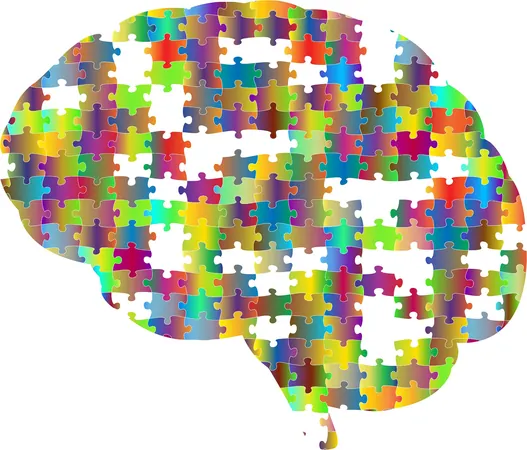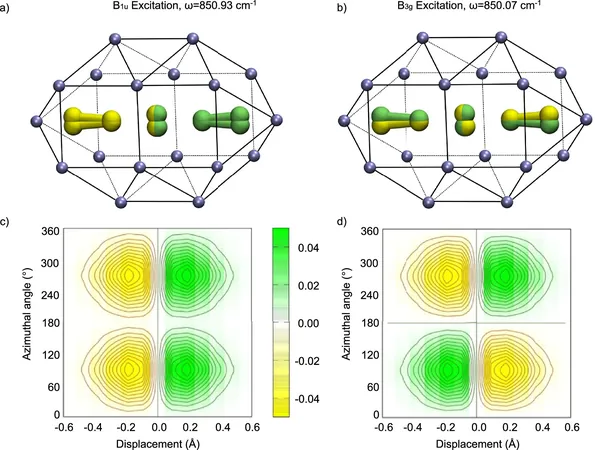
Unlocking the Mind: Key Brain Regions for Reasoning Skills Identified
2025-04-15
Author: Sarah
Revolutionary Study Maps Brain Areas for Logical Thinking
In a groundbreaking discovery, researchers from UCL and UCLH have pinpointed crucial brain regions that fuel our reasoning abilities. Their findings, detailed in the journal Brain, shed light on how the human brain enables us to comprehend, draw conclusions, and tackle complex problems.
The Power of Lesion-Deficit Mapping in Brain Research
To uncover which brain areas influence reasoning, the team employed a technique known as "lesion-deficit mapping," studying patients with strokes or tumors that resulted in brain damage. This method stands out as a powerful means of localizing brain functions, providing clearer insights than traditional imaging techniques which often deliver ambiguous correlations.
Challenging Research Landscape
Conducting research on brain injuries presents its own set of challenges, primarily due to the need for a significant number of patients with specific types of brain damage. Unfortunately, many research centers lack the necessary patient pools, leading past studies to lean heavily on functional imaging in healthy individuals—a method that can misrepresent true causation.
Innovative Tests Gauge Reasoning Skills
The recent study focused on 247 patients with unilateral focal brain lesions in the frontal or posterior regions, while also including 81 healthy participants for comparison. To assess reasoning capabilities, the researchers ingeniously created two novel tests: a verbal analogical reasoning task and a nonverbal deductive reasoning task—both designed to evaluate how individuals solve problems and find relationships.
Eye-Opening Results: Right Frontal Lobe's Vital Role
Findings revealed a striking trend: patients with damage to the right frontal lobe struggled significantly on both tests, making about 15% more mistakes than their peers with damage in other brain regions or the healthy controls. This stark contrast underscores the essential role this specific brain area plays in logical reasoning.
Key Insights from Leading Experts
Dr. Joseph Mole, the study's lead author, emphasized the study’s implications, stating, "Our research highlights how the right front part of the brain is crucial for problem-solving. Additionally, our new tests pave the way for better diagnosing reasoning deficits in individuals with brain damage." Professor Lisa Cipolotti added that their work has deepened the understanding of the intricate neural structures associated with reasoning.
Implications for Clinical Practice
The researchers believe their findings hold significant clinical importance. The newly developed tests could help uncover cognitive impairments that might otherwise remain undiagnosed, paving the way for improved treatment options for affected individuals. This impactful research not only advances our understanding of brain function but also offers hope for enhancing diagnostic techniques in neuropsychology.



 Brasil (PT)
Brasil (PT)
 Canada (EN)
Canada (EN)
 Chile (ES)
Chile (ES)
 Česko (CS)
Česko (CS)
 대한민국 (KO)
대한민국 (KO)
 España (ES)
España (ES)
 France (FR)
France (FR)
 Hong Kong (EN)
Hong Kong (EN)
 Italia (IT)
Italia (IT)
 日本 (JA)
日本 (JA)
 Magyarország (HU)
Magyarország (HU)
 Norge (NO)
Norge (NO)
 Polska (PL)
Polska (PL)
 Schweiz (DE)
Schweiz (DE)
 Singapore (EN)
Singapore (EN)
 Sverige (SV)
Sverige (SV)
 Suomi (FI)
Suomi (FI)
 Türkiye (TR)
Türkiye (TR)
 الإمارات العربية المتحدة (AR)
الإمارات العربية المتحدة (AR)